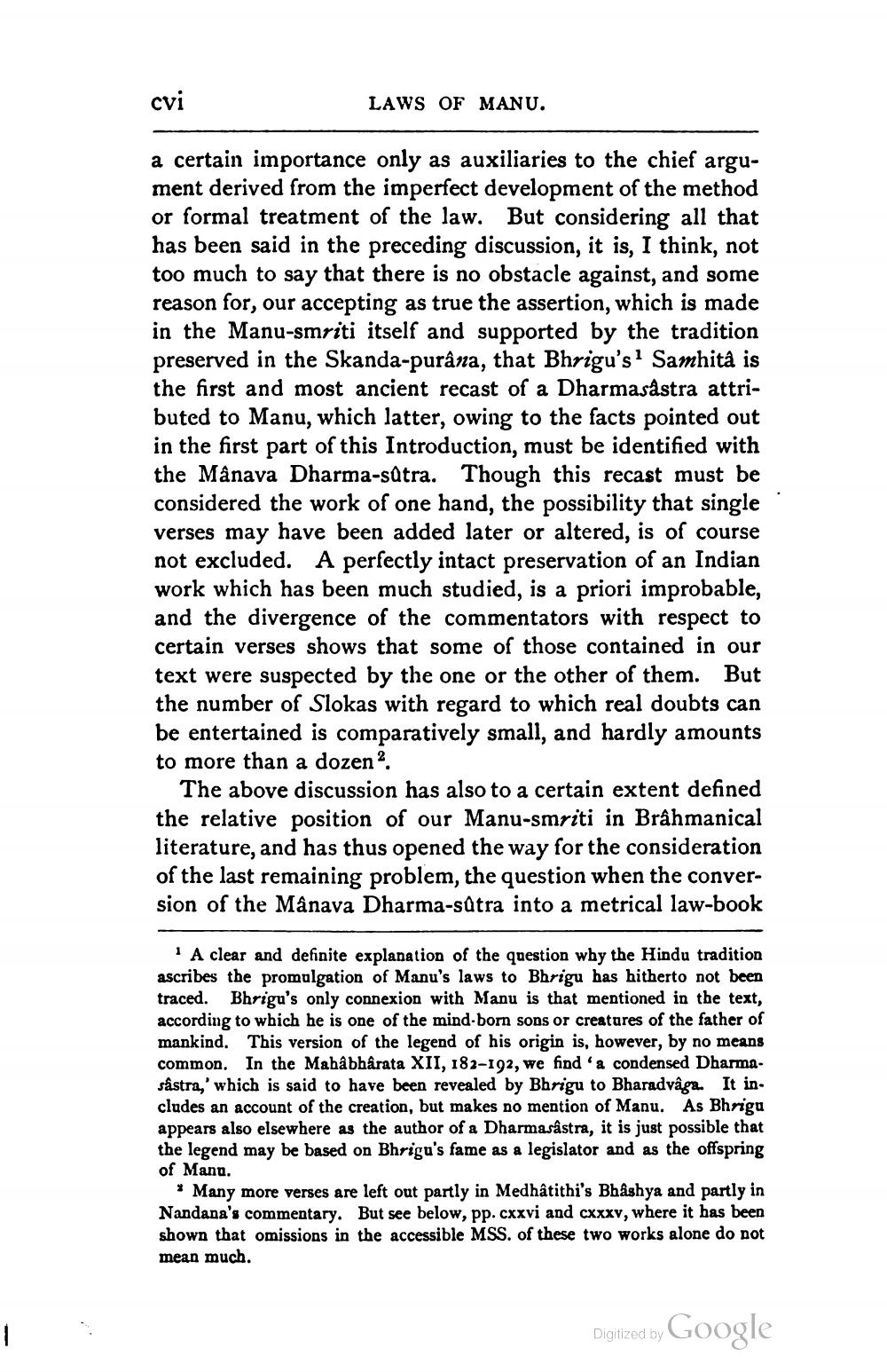________________
1
cvi
LAWS OF MANU.
a certain importance only as auxiliaries to the chief argument derived from the imperfect development of the method or formal treatment of the law. But considering all that has been said in the preceding discussion, it is, I think, not too much to say that there is no obstacle against, and some reason for, our accepting as true the assertion, which is made in the Manu-smriti itself and supported by the tradition preserved in the Skanda-purâna, that Bhrigu's1 Samhitâ is the first and most ancient recast of a Dharmasastra attributed to Manu, which latter, owing to the facts pointed out in the first part of this Introduction, must be identified with the Mânava Dharma-sûtra. Though this recast must be considered the work of one hand, the possibility that single verses may have been added later or altered, is of course not excluded. A perfectly intact preservation of an Indian work which has been much studied, is a priori improbable, and the divergence of the commentators with respect to certain verses shows that some of those contained in our text were suspected by the one or the other of them. But the number of Slokas with regard to which real doubts can be entertained is comparatively small, and hardly amounts to more than a dozen 2.
The above discussion has also to a certain extent defined the relative position of our Manu-smriti in Brâhmanical literature, and has thus opened the way for the consideration of the last remaining problem, the question when the conversion of the Mânava Dharma-sûtra into a metrical law-book
A clear and definite explanation of the question why the Hindu tradition ascribes the promulgation of Manu's laws to Bhrigu has hitherto not been traced. Bhrigu's only connexion with Manu is that mentioned in the text, according to which he is one of the mind-born sons or creatures of the father of mankind. This version of the legend of his origin is, however, by no means common. In the Mahâbhârata XII, 182-192, we find 'a condensed Dharmasâstra,' which is said to have been revealed by Bhrigu to Bharadvâga. It includes an account of the creation, but makes no mention of Manu. As Bhrigu appears also elsewhere as the author of a Dharmasâstra, it is just possible that the legend may be based on Bhrigu's fame as a legislator and as the offspring of Manu.
* Many more verses are left out partly in Medhâtithi's Bhâshya and partly in Nandana's commentary. But see below, pp. cxxvi and cxxxv, where it has been shown that omissions in the accessible MSS. of these two works alone do not mean much.
Digitized by Google




